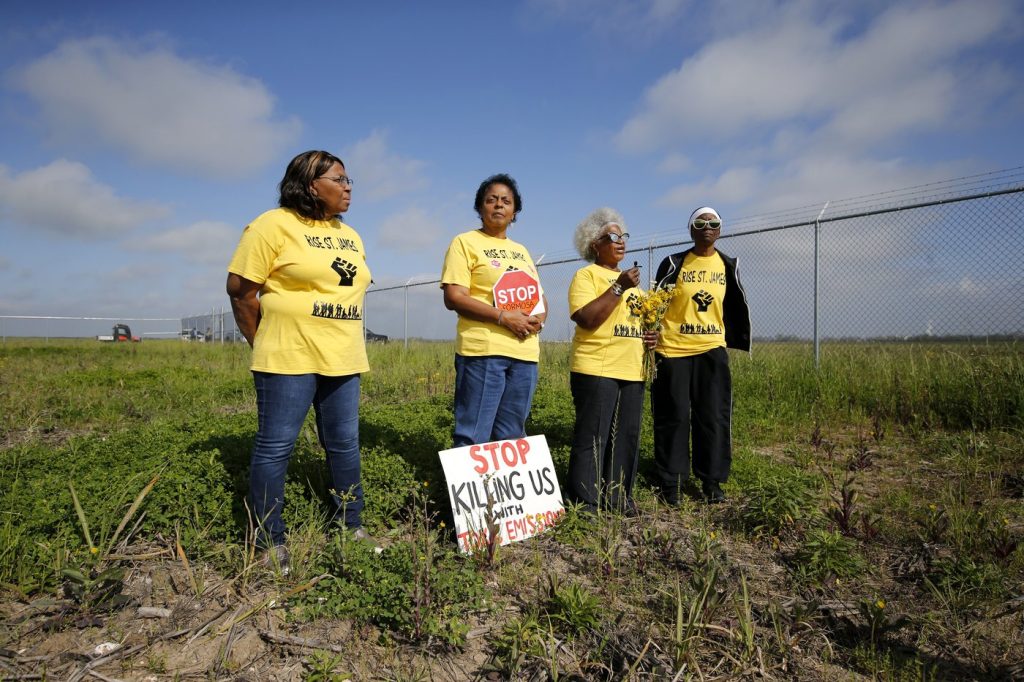For four years, the Environmental Protection Agency (EPA) prioritized environmental justice, focusing on improving health conditions in heavily polluted communities, which often include large populations of Black, Latino, and low-income Americans. However, this era appears to have come to a halt following President Donald Trump's recent actions.
In his first week back in office in January 2025, Trump disbanded a team of White House advisors tasked with ensuring the federal government assisted communities near heavy industrial sites, ports, and roadways. He also canceled the "Justice40" initiative, which had required that 40% of benefits from specific environmental programs be directed to communities adversely affected by pollution and industrial activity.
Experts warn that the government's review process for new facilities will likely overlook the potential exacerbation of pollution issues already faced by these communities. Trump's dismantling of Biden's environmental policies is expected to impede funding associated with the Inflation Reduction Act, which aimed to address climate change and promote environmental justice.
By reversing federal policies established during the Clinton administration that prioritize addressing environmental health issues for low-income and minority populations, Trump has withdrawn the U.S. from the Paris Agreement, a pivotal accord aimed at combating climate change. Trump’s new approach merges two primary objectives: rolling back what his administration has deemed burdensome environmental regulations and resisting efforts related to diversity, equity, and inclusion.
Joe Luppino-Esposito of the Pacific Legal Foundation argued that past discrimination can’t justify future discriminatory actions. He supports Trump’s executive orders as a means of enforcing the law impartially, sans racial considerations.
Under Biden, the EPA was noted for its significant achievements in promoting environmental justice—more than any previous administration, according to multiple experts. A noteworthy EPA study revealed that Black individuals across all income brackets were disproportionately exposed to pollution contributing to severe health issues such as heart and lung conditions. Under Biden's leadership, new public health regulations were implemented, air pollution standards were tightened, and efforts to eliminate harmful lead pipes were proposed.
Additionally, the EPA recorded the largest fine ever under the federal Clean Air Act and successfully reduced over 225 million pounds of pollution in overcrowded communities. It also allocated federal grants for cleaning Superfund sites and financing low-emission school buses, while establishing an office dedicated to environmental justice initiatives.
Jade Begay, an Indigenous rights and climate organizer in New Mexico, expressed her disheartenment over the recent policy changes, reflecting on the progress made just weeks prior to Trump's reinstatement. The cycle of federal support for grassroots environmental justice initiatives has historically fluctuated with the political landscape, with local organizations often finding ways to advance their missions despite varying levels of government support.
As reflected by Christophe Courchesne, a law professor, environmental justice became a focal point in the ongoing struggle surrounding diversity, equity, and inclusion, ultimately becoming a target for conservative activism. Daniel Gall, an EPA spokesperson under Trump, assured that the agency would continue its efforts to maintain clean air, land, and water.
The current policy adjustments under Trump's administration mark a considerable departure from the previous term, during which Scott Pruitt, former EPA head, recognized the relevance of environmental justice. Rena Payan from Justice Outside criticized these new measures as a rollback of decades of progress in reducing environmental discrimination.
These shifts extend beyond the public sector, as the administration also seeks to diminish diversity, equity, and inclusion protocols within the private sector, which has surprised some observers. Anne Rolfes, director of the Louisiana Bucket Brigade, indicated that while the Biden administration initiated significant improvements, enforcement of existing laws was insufficient, providing too much leeway for polluters in heavily industrialized areas like Louisiana.
Ash LaMont, national campaigns director for Honor The Earth, highlighted the need for local advocacy and community engagement in light of the federal government's withdrawal of support, recognizing the uphill struggle faced particularly in Republican-controlled territories. Peggy Shepard of WE ACT for Environmental Justice lamented the setbacks for frontline communities that had just started gaining momentum with federal backing.










